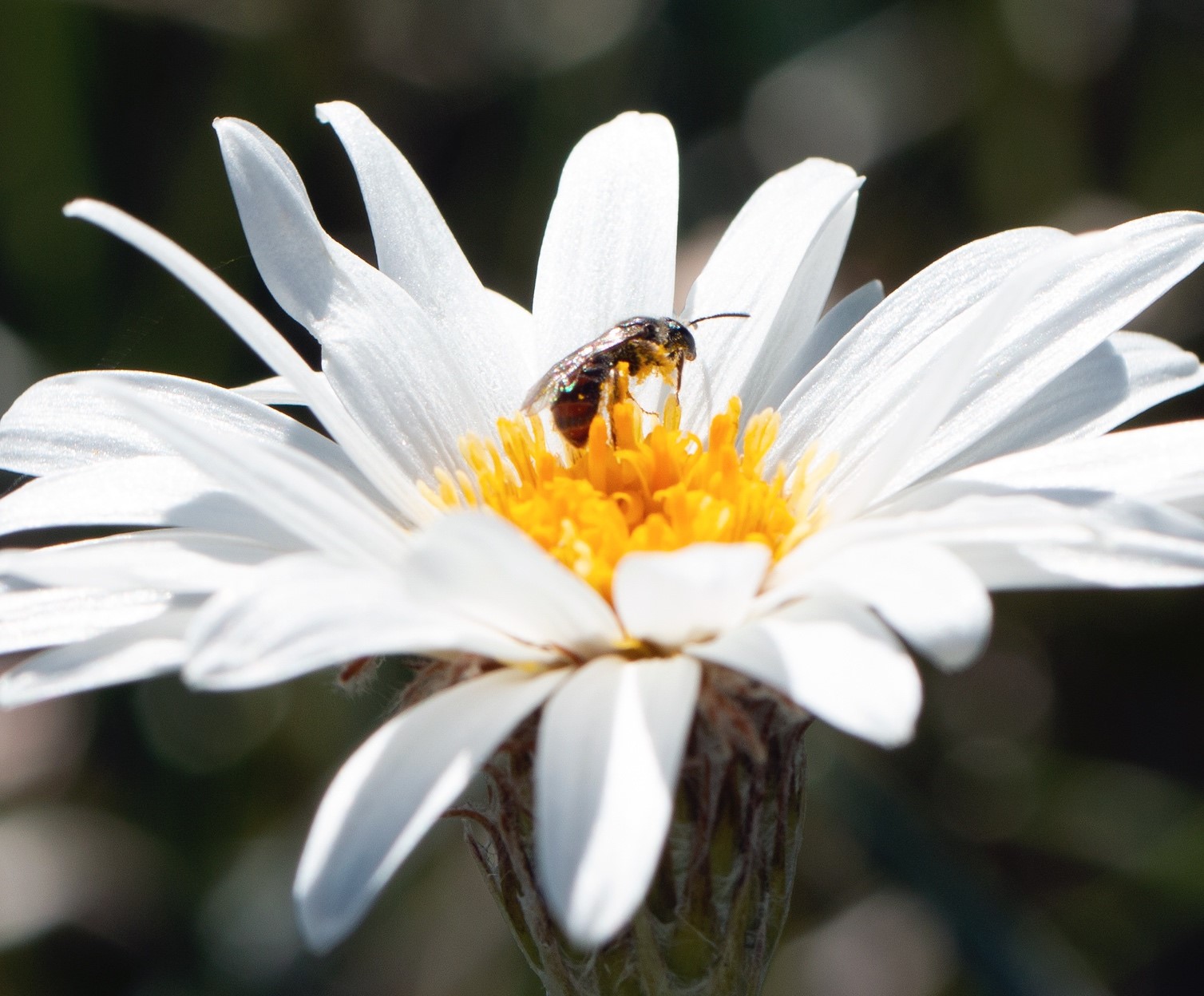Environomics = environmental genomics.
The Environomics Future Science Platform at CSIRO is using genomics, bioinformatics and nanotechnologies, to reinvent how we measure and monitor ecosystem health, change and threats, and find new resources in nature.
The challenge
Climate change, bushfires and habitat loss threaten the survival of many plant species. Detecting and monitoring changes to vegetation is crucial for long term conservation of many threatened species and ecosystems.

But traditional plant biomonitoring programs rely on time-consuming and costly field surveys, which may need to take place across vast or difficult to access areas or on private lands.
What we're doing
We are using pollinating insects as biomonitors. Pollinators such as European honey bees are experts at surveying flowering plants, bringing pollen DNA back to their hives.
We collect pollen DNA from honey, bees or pollen traps within hives and use pollen DNA metabarcoding to identify the plant species that were visited by the bees.
Pollen DNA metabarcoding is a high-throughput genomic method, enabled by reference specimens of expertly identified plants held in herbarium collections.
Benefits for Australia
Pollen DNA metabarcoding is a new technology for protecting threatened areas and carrying out large scale biomonitoring programs.
We are now implementing this new technology to monitor changes to the unique alpine plant community in Kosciuszko National Park and to detect weeds.
We are also using the Australian National Herbarium collection to identify and generate DNA barcodes for rare and endemic Australian species. This will expand the potential for pollen DNA metabarcoding to be deployed to monitor rare native plant species in large areas of national parks and nature reserves.
Get involved
We've worked with beekeepers in Canberra to use bees to survey flowering plants in an urban wetland. The results surpassed traditional field survey methods and we found honey to be the best source of species information.
This unique technology is available to solve your problem. Talk to us about measuring plant biodiversity and change, detecting weeds in highly inaccessible areas, researching the behaviour of pollinators, understanding pollinator services to agriculture, determining honey provenance and more.
Thanks to our partners at: ACT Beekeepers and Bioplatforms Australia.
Environomics = environmental genomics.
The Environomics Future Science Platform at CSIRO is using genomics, bioinformatics and nanotechnologies, to reinvent how we measure and monitor ecosystem health, change and threats, and find new resources in nature.
The challenge
Climate change, bushfires and habitat loss threaten the survival of many plant species. Detecting and monitoring changes to vegetation is crucial for long term conservation of many threatened species and ecosystems.
But traditional plant biomonitoring programs rely on time-consuming and costly field surveys, which may need to take place across vast or difficult to access areas or on private lands.
What we're doing
We are using pollinating insects as biomonitors. Pollinators such as European honey bees are experts at surveying flowering plants, bringing pollen DNA back to their hives.
We collect pollen DNA from honey, bees or pollen traps within hives and use pollen DNA metabarcoding to identify the plant species that were visited by the bees.
Pollen DNA metabarcoding is a high-throughput genomic method, enabled by reference specimens of expertly identified plants held in herbarium collections.
Benefits for Australia
Pollen DNA metabarcoding is a new technology for protecting threatened areas and carrying out large scale biomonitoring programs.
We are now implementing this new technology to monitor changes to the unique alpine plant community in Kosciuszko National Park and to detect weeds.
We are also using the Australian National Herbarium collection to identify and generate DNA barcodes for rare and endemic Australian species. This will expand the potential for pollen DNA metabarcoding to be deployed to monitor rare native plant species in large areas of national parks and nature reserves.
Get involved
We've worked with beekeepers in Canberra to use bees to survey flowering plants in an urban wetland. The results surpassed traditional field survey methods and we found honey to be the best source of species information.
This unique technology is available to solve your problem. Talk to us about measuring plant biodiversity and change, detecting weeds in highly inaccessible areas, researching the behaviour of pollinators, understanding pollinator services to agriculture, determining honey provenance and more.
Thanks to our partners at: ACT Beekeepers and Bioplatforms Australia.
